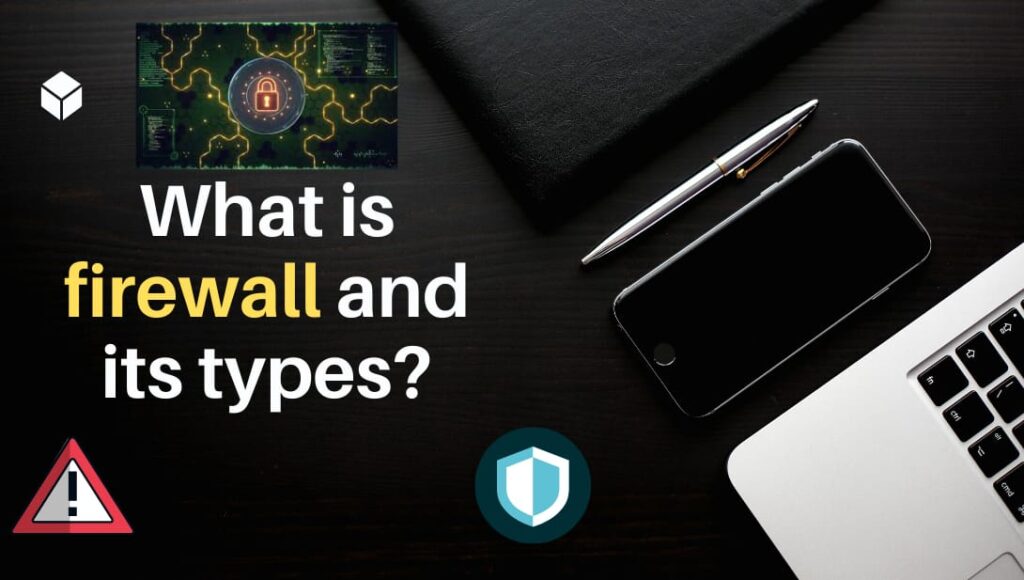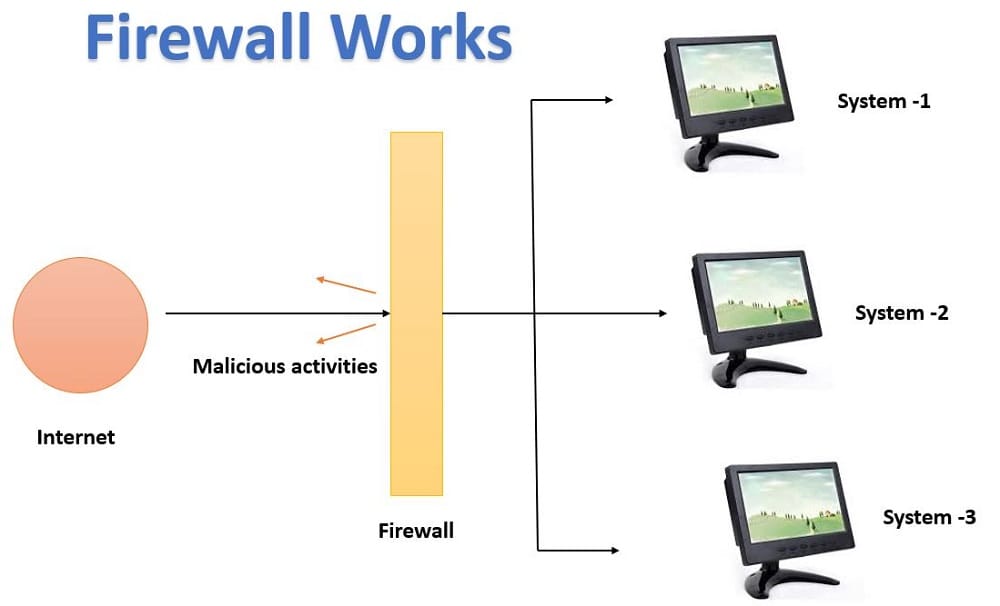Hey guys, welcome all, in this module, we are going to discuss What is Firewall and The Different Types of Firewalls, will cover each and every part of the same, and will also discuss the consequences of the same.
If you are afraid of potential threats that can anytime harm your system or your business, then you should go for the firewall setup. So, what is a firewall, what is the work of a firewall and how does it protect your system? Let us understand all these concepts.
What is Firewall?
A firewall is a system or software that provides security to the network. It monitors the internal security by filtering the outgoing and ingoing network traffic i.e., both in and out based on several rules implemented by the user. They eliminate or in some cases reduce the existence of waste or unwanted communication, and will only give permission to the useful information and communications that are taking place in the network.
The firewall provides a very simple way to involve or add security in the system which can prevent our system from malicious attacks. It provides security by involving an Intrusion Detection System or Intrusion Prevention System, and many other security providers within the network.
The firewall has become essential to be installed in our system and also many businesses are using the same so that all their data and files should be safe and didn’t interrupt by the attacker because security is something that is a very essential part of the business.
How do firewalls work?
A firewall acts as the security guard which monitors each and every packet and file which are moving in and out of the network and allows it to travel only that file or packet which does not contain or include any malicious activities in it. It becomes a barrier to malicious activities and threats.
The below diagram clearly shows the work of the firewall.
The Different Types of Firewalls
There are mainly 3 types of firewalls available and that is hardware firewall, software firewall, and both (hardware + software), they all have the same goal but their functionalities are different.
-
- Software Firewalls
- Hardware Firewalls
- Packet Filtering Firewalls
- Circuit Level gateways
- Stateful Inspection Firewalls
- Proxy Firewalls
- Next-Generation Firewalls
Software Firewalls
Software firewalls are used in local devices or host devices. They work by creating an in-depth defense path. These are also called host firewalls. They can access any type of resource for their work from the device in which they are installed.
The main drawback of this device is that if you have multiple devices then in that case you have to install the software on each and every device present there. The main work of this software is that they can easily distinguish between each and every program that is floating here and there in the system and hence, can take several actions regarding that.
Hardware Firewalls
Hardware firewalls are a type of physical device, that can be found between a gateway and a computer network. It is also known as an Appliance firewall. They act as traffic routers. These are basically security guards that are assigned for the separate hardware. They have their own resources, they don’t need any types of resources from the system just like the software firewalls.
Big organizations which are having a lot of computers installed under the same network use hardware firewalls. To use the hardware firewalls a good amount of knowledge and skills are required, it should be installed very carefully.
Depending on the features and the security level that they provide, there are many more firewalls available, such types of firewalls can be implemented as hardware or software.
Packet Filtering Firewalls
Packet Filtering firewall is the most basic and general type of firewall, based on the method of operation. The ideas of this are based on data filtering. It is the oldest firewall available. This does not create so much impact on the performance of the network.
It will check all the data packets that come in and out of the network, and if any information looks suspicious, it does not allow that packet to go through that network. It doesn’t need a lot of resources. It is not considered as the best when the security comes to a strong system. It is not considered very secure as it does not allow to check the packet payload.
Circuit Level gateways
Circuit Level gateways are the firewalls that first observe the TCP (i.e., transmission control protocol) sessions and connections and work at the session layer of the OSI model. It is quite similar to the Packet filtering firewalls, but they inspect the information and transaction. These are practical and very simple to set. The main functions are to see whether all the connections are safe or not.
Stateful Inspection Firewalls
Stateful inspection firewalls are the systems that monitor both the incoming packets and TCP connections or session-level state information to determine how these data are transmitted. It provides a higher level of security. It takes more resources for their work which sometimes slows down the system.
Proxy Firewalls
Proxy firewalls are also known as clouds firewall and Application-level gateways. These firewalls operate with no filter traffic in the application layer. They make the traffic and examine all types of data that are passing through. These have the special power to check the packet connections in more depth.
Next-Generation Firewalls
Next-generation firewalls, by the name, only suggest that all the newly originated firewalls are considered in this category. These come with all the above-combined features and provide better security. These firewalls monitor the full transactions of data, including all the contents of the packet and header and many other resources included. These firewalls provide higher security than the firewall above mentioned.
How to choose which firewalls are best for your business?
It depends on How many levels of security you want for your business, however, it is the best practice to use combinations of different firewalls so that you can gain a high level of security. You can see the following list of factors available here, which will help to choose the right firewalls.
- Resource availability: If your business is capable enough to install separate firewalls for each system that they have enough resources to tackle, then it is a very good option available.
- The organization size: If you own an extremely large company and there must be a large network, then you should select a firewall that can easily monitor the entire complex network of your company.
These are the two major factors, there may be many more factors depending on the company’s requirements and affordability.
I hope the What is Firewall and The Different Types of Firewalls module helps you all a lot in knowing the concepts of firewalls and various types of firewalls, one of the main topics of cryptography. Stay connected for more modules that are coming up. Until then stay safe, stay protected, and keep learning.

